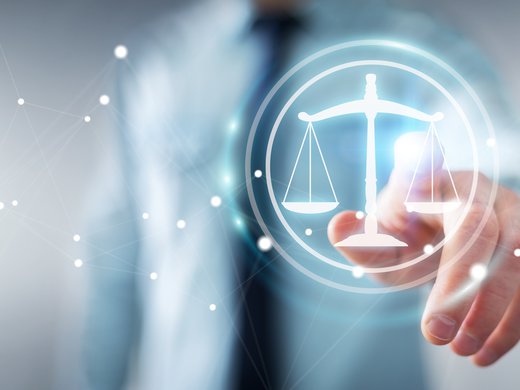The internet is unique because we surf it together. The internationally recognized freedoms of expression and assembly reflect part, but not all, of how we engage with others online — we express ourselves as individuals, and we come together in virtual fora. The missing third leg of the internet freedom stool is the “freedom to collaborate,” an articulation of our freedom to contribute and to react to others’ contributions, resulting in a whole that is greater than the sum of its parts.
Distinct from existing freedoms, the concept of internet freedom — the preservation of the internet as a free, open and accessible space for the realization of fundamental human rights online — typically encompasses the freedom of expression, articulated in article 19 of the Universal Declaration of Human Rights, and the freedom of assembly and association, affirmed in article 20, and grows from these and other fundamental rights. Reflecting on the challenges facing the modern internet, advocates for internet freedom should also explicitly recognize, and work to preserve globally, the freedom to collaborate on the internet. While the right to collaborate is not grounded in existing human rights treaties, recognizing it as a new distinct right complements the freedoms of expression and assembly in practice and will help to shape the future development of legislative and regulatory exercises, with the objective of preserving the unique togetherness characteristic of the internet.
What distinguishes the internet most from its various predecessor technologies is that we don’t surf alone. Even in the Web 1.0 days, the internet changed so many things because of the ways in which it helped us co-exist virtually, for better and for worse. We built code together and we built communities on top of that code, resulting ultimately in what today is not a public square but instead a digital public hypersquare.
From its beginning, the internet has been a unique medium. It isn’t a fancier version of the television, although it has plenty of excellent streaming service options. It’s also not a fancier telephone, although never before have we had so many ways of communicating with our family, friends and colleagues. The internet is a telephone and a television and a video game console and a music player. It’s all of these things, and so much more, because it is a platform for unprecedented collaboration.
Critical to realizing the freedom to collaborate in practice are, first, accessibility, including accessibility for interaction, so that individuals are freely able to contribute to collective works and to react to and contribute downstream of others’ contributions, and second, permanence, so that contributions will be incorporated into the collective effort in a lasting way, able to be used and further added to by others over time.
Collaboration occurs when the collective acts of multiple individual human beings result in a thing that is more than the sum of its parts; that greater value can only be realized if accessibility and permanence are preserved. Software development is an obvious, but not the only, example of valuable online collaboration; online communities exhibit the same properties, and their success depends on the same freedom. If we can’t reach online communities or code repositories, if we can’t react to and add to what others are doing, or if we can’t be confident that our contributions will persist as part of the collective product going forward, we do not in practice have a freedom to collaborate, and will not invest in, and benefit from the output of, collaboration.
In Europe, the Digital Services Act and the Digital Markets Act will set global precedents, just as the earlier European privacy law, the General Data Protection Regulation, did.
The Freedom to Collaborate Online Is At Risk
The unprecedented digital collaboration we have seen through the internet has only been possible because the internet was built with freedom at its core. But this freedom cannot and must not be taken for granted. Global internet freedom has declined for the eleventh consecutive year, according to Freedom House. Largely, this trend reflects the growing use of authoritarian information controls; however, growing industrial policy increasingly presents additional dimensions of risk.
New laws on the horizon have the internet landscape poised for a major shift. In Europe, the Digital Services Act and the Digital Markets Act will set global precedents, just as the earlier European privacy law, the General Data Protection Regulation, did. These laws, together with the UK Online Safety Bill and other proposals under consideration in countries all around the world, are intended by governments to make the internet safer and more competitive. But, as always, the devil is in the details — fixing some things can break others, such as the freedom to collaborate online and, in particular, to collaborate on software development. In turn, deep and possibly existential questions arise regarding the future of innovation and the internet.
Of special concern, some proposed laws would change the status quo of intermediary liability and immunity in ways that would undermine the freedom of not only expression but also collaboration. For the most part, where a person uses an online service to commit a crime, the obligation of intermediaries is limited to taking action following due legal process and notice; while this “notice and takedown” system is imperfect, and certainly capable of failing through abuse of legal processes and unintended takedowns of legitimate content, the trade-offs have largely been accepted. But now, in the domains of both copyright and online harms, governments around the world are re-evaluating that balance.
The first category of these worrisome proposals is that of filtering obligations. For several years, copyright policy debates have tangled with “notice and stay down” proposals, which would force platforms to employ filtering technologies to proactively limit unauthorized sharing of copyright-protected content. Most recently, the US SMART Copyright Act of 2022 is seeking to authorize the federal government to make it easier to designate a particular filtering technology as “standard technical measure,” effectively mandating its use. Filtering obligations are also arising from online safety laws; notably, the UK government is seeking to connect its Online Safety Bill to its National Security Bill, which would result in mandates for online platforms to take pre-emptive action to block foreign disinformation in the United Kingdom.
Filtering requirements undermine the freedom to collaborate in several ways, including through the harm of false positives and the imposition of chilling effects. The impact of filtering on freedom of expression is well documented. Because filtering affects the accessibility and permanence of online collaborative products by impeding or removing contributions, it also undermines the freedom to collaborate. And where filtering obligations impact software development, these consequences are amplified by an order of magnitude: dependencies and common code reuse practices mean that actions to take down software libraries can affect numerous downstream products that incorporate those libraries by reference.
Consider open-source software in particular; a recent study found that 97 percent of all software includes some open-source pieces. Where an open-source software library is blocked by filtering, the downstream consequences of a mistake are staggering. Open-source collaboration and the freedom to collaborate that powers it are necessary for both the maintenance of existing technology and the creation of the vast majority of future innovation.
Like filtering, real-identity verification requirements threaten the freedom of not only expression but also collaboration. Real-name obligations have been shown to lead to increased discrimination and harassment, leaving members of vulnerable populations with less freedom to collaborate online. In Australia, the United Kingdom and the United States, serious — albeit political-minority — proposals have called for associating online social media accounts with real-world identities. Some well-intentioned proposals seeking to prevent harm to minors from online activity will be hard to realize in practice without verifying the identity of an online user; these proposals include the United Kingdom’s Age appropriate design code and a recent US district court case ruling that determined Section 230 does not protect a chat service provider who facilitated anonymous communications between a minor and an online predator. While real-identity verification obligations do not as directly impact the assumption of permanence necessary for freedom of collaboration, by making online collaboration less accessible, they impede the freedom to collaborate in significant ways.
Consider a hypothetical law that forced all online content to be made unavailable within 15 minutes of its posting. Any individual could speak and be heard, for their full 15 minutes of fame, and no additional limits would be placed by the law on the ability of individuals to join together and communicate.
Preserving Collaboration Requires More than Preserving Expression
The above proposals affect both expression and collaboration, yet the two freedoms are distinct, and it is possible to protect expression and assembly while nevertheless undermining collaboration. Understanding those distinctions requires a deeper dive into proposals that would specifically undermine either the permanence or the accessibility of the combined inputs in a collaboration.
Consider a hypothetical law that forced all online content to be made unavailable within 15 minutes of its posting. Any individual could speak and be heard, for their full 15 minutes of fame, and no additional limits would be placed by the law on the ability of individuals to join together and communicate. Yet, something fundamental would be lost. In this case, the assumption of permanence would no longer hold true, and practical limits would be imposed on the ability of one individual to react to, and contribute downstream from, another’s individual contributions. While we could all speak, and some limited amount of interaction would be feasible, the combined value of the interactions would be no more, or little more, than the sum of the value of the individual parts, losing that magic of true collaboration.
Accessibility is undermined where valuable collaborations are impossible because of gatekeeping that prevents access to shared resources or blocks virtual spaces for shared work products. Interoperability is the contrary value, and is one of what the Internet Society calls “internet invariants.” Without interoperability, the internet would devolve into something more like glorified cable television, driven by top-down content and code production — offering substantial value to consumers, but very much not “the internet.” The freedoms of expression and assembly do not inherently depend on interoperability for their online exercise. But the freedom to collaborate does. Corporate gatekeeping within modern-day walled gardens and technology silos can substitute private actors for public ones as potential barriers to free expression and assembly, but nothing inherent in the technology impedes these freedoms from being protected — it’s just a different actor who must take action to protect them. In contrast, collaboration is inherently limited without the ability to build independently with and on top of existing technologies.
Focusing on Freedom to Collaborate Can Address Deeper, Systemic Challenges
Collaboration on the internet can feel like an issue quite removed from core free-expression matters, and, given the salience of expression in well-established narratives of individual human rights, the blunt question “Why bother?” is worth asking. It’s hard enough to balance speech and harm in the highly visible context of social media. Where the speech at issue isn’t human language but rather code, or an amorphous community, that balance is harder to perceive. And it’s harder still when the balance focuses not on one individual’s ability to create speech or code, but instead on the ability of a community to collaborate together.
Preserving collaboration is in some sense orthogonal, and thus complementary, to supporting the freedoms of expression and association. In addition to its inherent value and distinctness, the freedom to collaborate may offer a more tractable lens for engaging with intermediary public policy conversations — because the discussion becomes not about the balancing of rights in individual instances through judicial processes, but about the use of legislative and administrative processes. The world stands on the cusp of a major change in how we protect rights — particularly, but not only, in the context of the internet — and having as many tools and theories as possible to test in the wake of that change will be advantageous, even if some of them do not end up being strategic or viable.
The protection of rights online is changing because governments around the world are accelerating their work on new tech regulations. The most recent Freedom on the Net report identified 48 countries working on new legislative or administrative actions. In many cases, including that of the European Union, whose actions carry substantial normative weight, the nature of these interventions is divisive of the global internet — the evocative phrase “China trap” describes how countries are contemplating a combination of legal and technical means to enforce sovereignty of their new rules.
These developments will change the playing field for human rights as they are expressed online in many ways. And those changes will be harder to adjudicate through established mechanisms of justice. Where an individual’s rights are directly circumscribed by government action, such as law enforcement, courts are the typical recourse. But where those rights are instead affected indirectly — by the actions of legislative rules applied to private sector platforms, whose intermediary functions are the means by which rights are expressed — the path to justice for individuals who are harmed becomes much murkier.
In the United States, where legislative progress is somewhat slower, a parallel but equally concerning development is occurring as the Supreme Court asserts greater independent authority over interpreting the law, through actions that will also empower similar autonomy in lower courts. Harvard Law professor Niko Bowie calls this a breakdown in legal liberalism’s theory of change; for decades, lawyers assumed that effective argumentation would rule the day in court, but the assumptions of objectivity and a degree of removal from politics that underlie that theory are no longer robust.
The loss of confidence in a shared objective truth is, of course, a broader challenge, as well as a global one. The RAND Corporation frames this problem as truth decay, and former US president Barack Obama describes a similar challenge in the breakdown of “a kind of communal glue” in social institutions, which in turn allows misinformation to be weaponized against democratic systems. None of these dynamics gives much hope for improvement for domestic or international legal systems and processes.
Overall, traditional methods and mechanisms of protecting fundamental rights in the digital sphere reflect an increasingly outdated view of power and justice. Because vindicating expression and assembly are grounded in that frame, we need more. Complementing those freedoms rather than displacing them, the freedom to collaborate is useful not as a lens in investigating specific instances of harm or any kind of individual enforcement action, but rather as a frame for considering public policy, legislative and regulatory interventions. Collaboration has echoes, perhaps, of Niko Bowie’s answer to the challenges facing legal liberalism: organizing, from the bottom up, is the sustainable and disruption-resistant source of power that advocates should invest in to achieve change in the current environment.
Public policy conversations that involve online speech necessarily manage a delicate balance of rights. There are no easy answers. But rarely do these conversations take stock of the impact of proposed policy reforms on the internet as an engine to promote the freedom of collaboration. Meanwhile, the uniquely self-perpetuating power of the internet allows people to work together to create code that, in turn, helps create the future of the internet. That cycle is at risk, and with it, the freedom to collaborate that makes the internet special.



